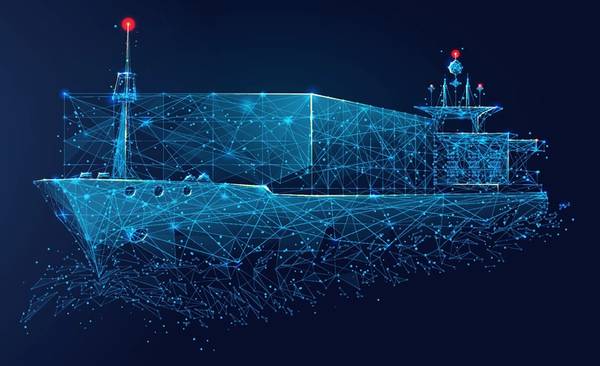
The incorporation of information and communications technologies (ICT) is transforming the way the maritime industry is doing business. While the sector is beginning to reap the benefits of integrating smart solutions in its operations, there are barriers that it needs to overcome to ensure that it optimally leverages the adoption of technology.
ICT has disrupted the way many sectors do business, and the maritime industry is no exception as advances in technology are increasingly nullifying traditional ways of working. According to a Global Marine Technology report, technological advances have led to the emergence of new ways of working which is necessitated by the need to optimize operations, explore new opportunities or meet modern day challenges facing the industry. The report further points out that the trends to look out for now and in the future relate to shipbuilding, propulsion and powering, smart shipping, big data and analytics, advanced materials, robotics, sensors and communications.
As broadband connectivity becomes more pervasive, the industry has seen the proliferation of smart shipping and smart ports and the infusion of smart technologies like sensors, Internet of Things (IoT) and artificial intelligence (AI) which has improved operations and safety both at port and at sea. Digital twin technologies have made it simpler and easier to design, build and improve the shipping hull. The advent of 3D printing is also noticeable due to the interest for producing parts that a ship might in an emergency.
The introduction of smart applications such as autonomous ships which use similar technology as driverless cars, is increasingly becoming commonplace in the high seas. While the ships are not expected to be piloted completely by computers, they free up the crew on board to attend to other tasks.
The use of this technology is resulting in fewer accidents and less costly operations. The adoption of virtual reality (VR) applications in training simulations for pilots is proving to be equally valuable, as is the use of drones in conducting ship to shore deliveries. The use of these smart solutions has slashed operational costs as it has negated the need to hire expensive boats to conduct similar tasks. The deployment of this equipment has also played a vital role in security as the drones double up as additional surveillance looking out for stowaways.
In addition, the adoption of these technology solutions has significantly improved operations and made them much safer. The deployment of sensors on ships and yards has resulted in a noticeable improvement in safety at the ports, as this has improved communications between ships, enhancing better communications around issues of ship proximity and speed, thus preventing collisions. Sensors installed in lighthouses also have been crucial in proving warning signals of potential collisions.
The progress that the maritime industry has achieved to integrate technology into its operations is very encouraging, however, there are areas of improvement and a lot more can still be done to fully harness the power of ICT. Collaboration among industry players remains one of the missing links that needs to be plugged. Big maritime players and tech start-ups are not working in concert, but instead seem to be pulling in different directions.
The industry should take a leaf from the financial services sector, which demonstrated how collaboration can benefit both the industry and consumers when established banks teamed up with start-ups who disrupted the industry with innovative, digital services under the Fintech banner. This collaboration resulted in a fruitful partnership that enhanced the value proposition of the industry.
Other areas of improvement include digitizing some aspects of the operations which remain manual and tedious in nature. This can significantly improve efficiencies and result in an immediate returns. For example, electronic bills of landing are mostly physical, and these can be easily digitized through several technologies that are already available in the market. The use of 5G for better, faster and more stable connectivity can be leveraged. The operations and safety of the shipping industry relies on effective communication and 5G can play an invaluable role in this complex risk landscape.
While there is no shortage of smart solutions that can be used to improve operations, the drawback is the shortage of skilled personnel to operate and manage these applications. We believe that the regulatory framework governing the maritime sector should also be amended and make it mandatory for the industry to adopt these technologies, particularly in so far as it relates to safety. Data and analytics have a huge role to play in the maritime industry. When ships travel, they generate tons of data from different sources and in several formats. This inflow of data from the shipping industry is collated and organized in a cloud-based system. Data analytical tools then consolidate, dissect and produce insights from this data which offer endless possibilities.
Data and analytics can positively impact the maritime industry in a number of ways, namely eliminating intuition and promoting better decision making, provide accurate predictive analysis, foster efficient vessel operations, automate operations, boost profits, reduce emissions and improve architectural decisions. For example, data analytics can save time and money by giving vessel operators data on a likely time of engine breakdown, which will give them the opportunity to conduct proactive maintenance before the actual event.
To fully transform the sector, it will also take a combination of identifying solutions, finding people with the necessary skills and experience to implement the smart solutions needed to take the sector to the next level.




